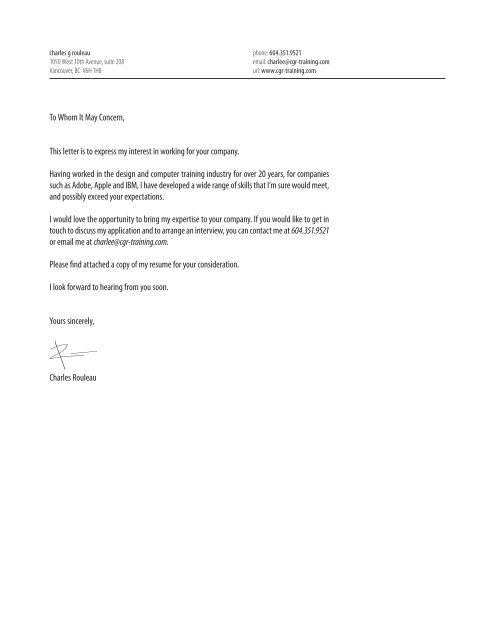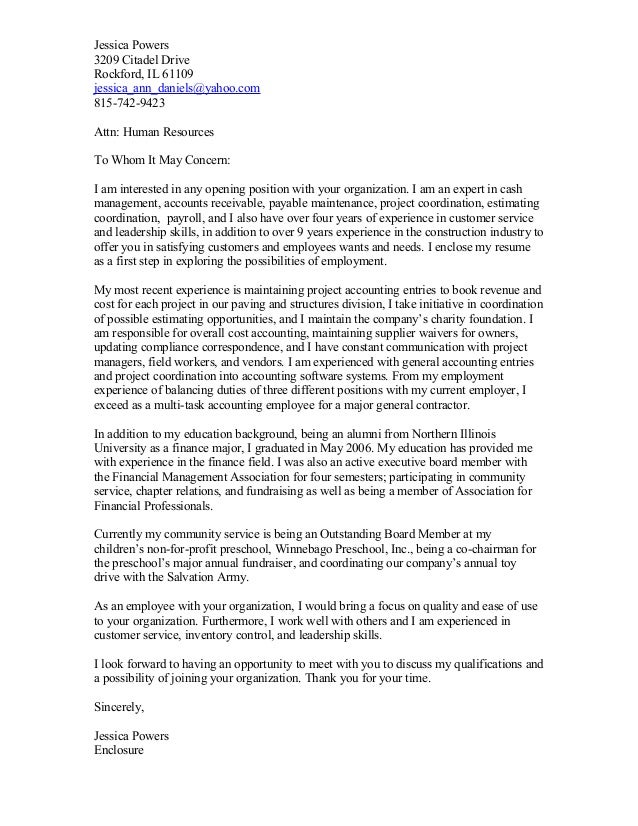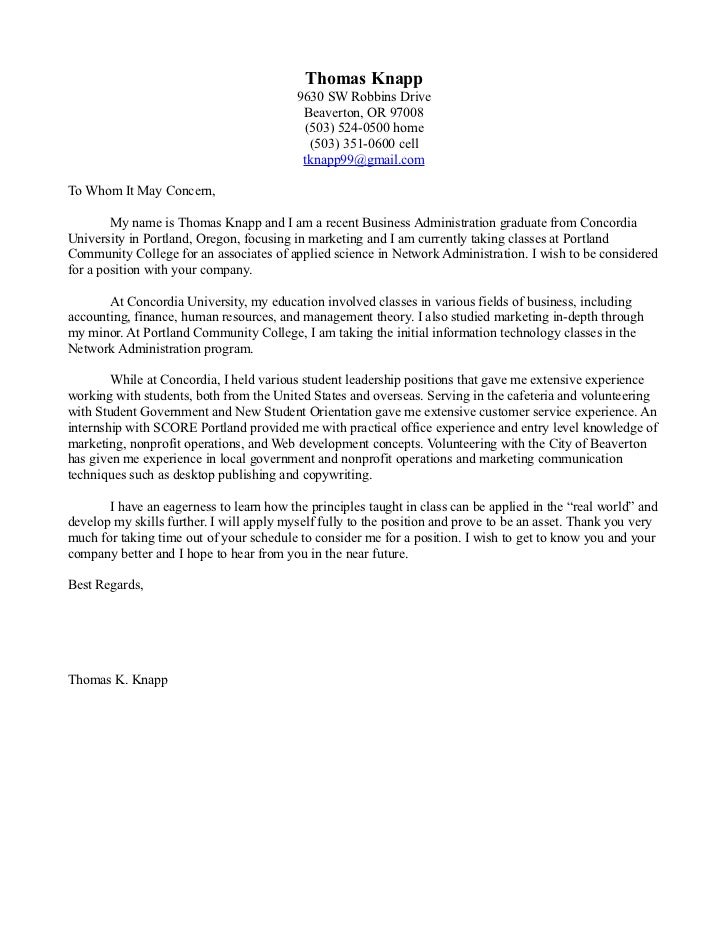

Now, let’s go into when and when not to use “To Whom It May Concern” in business correspondence. The first letter of each word is capitalized, and you should use a colon afterward instead of a comma. When you are unsure whether the person you are addressing the email to is getting it, you are probably better off using generic salutations.īecause “To Whom It May Concern” comes from formal communication, be sure to spell it correctly. That is one reason why it is not common to use it anymore. Today, it is relatively simple to find out the name of your contact person. Where does “To Whom It May Concern” come from?īack in the day, ‘To Whom It May Concern” was used as a salutation in a formal letter when you didn’t know who to address the letter to. In this article, we’ll go into exactly when to use it and when to avoid it. Using “To Whom It May Concern” out of habit is getting outdated.
TO WHOM IT MAY CONCERN IN COVER LETTER HOW TO
You should know how to use it and when it is appropriate to use what. Today, there are many alternatives available.

In most cases, they recommend that you use “To Whom It May Concern”. If this information is not readily available, do some research to find it, and make a first impression with your greeting that they won't easily forget.When we were in school, many of us learned that it is essential to start your formal communication professionally. Instead of these greetings, do your research and address you letter directly to the manager or recruiter responsible for the job listing. If the objective of your cover letter is to get an interview, though, you should avoid both of these phrases. You might not think about it until you sit down to write the letter, and then you find yourself wondering: should I say "to whom it may concern" or "to whosoever it may concern"? Both of these sound like they could be correct, and strictly speaking, they may be. Your cover letter is often the very first impression a potential employer will get, so it is imperative that you get the salutation right and greet your potential employer appropriately. Regardless of what career you are seeking-whether it's an entry level job or a CEO gig-you want to introduce yourself with confidence and poise. All of your efforts should support a positive and proactive brand, one that establishes your expertise and fit for the role for which you are applying.įirst impressions are one of the most important parts of the job hunt. The resume and the cover letter must convey the skills and accomplishments that make you a strong contender for the role you are pursuing. Since the objective of your resume and cover letter is to secure an interview, the greeting is the first step to establishing a tone that is respectful and positive.
TO WHOM IT MAY CONCERN IN COVER LETTER PROFESSIONAL
As previously stated, conducting some self-directed research via the company’s website or leading social and professional networking sites (like LinkedIn) might aid you in your search for an appropriate person. Introducing yourself in an appropriate and professional manner is important.

It’s always best to address a cover letter to a specific person. Conduct research on LinkedIn and the company website to find the name of the person to whom you should address your letter. To Whom It May Concern' is the correct way to open a cover letter if you don’t know the name of the person to whom you should address the letter.


 0 kommentar(er)
0 kommentar(er)
